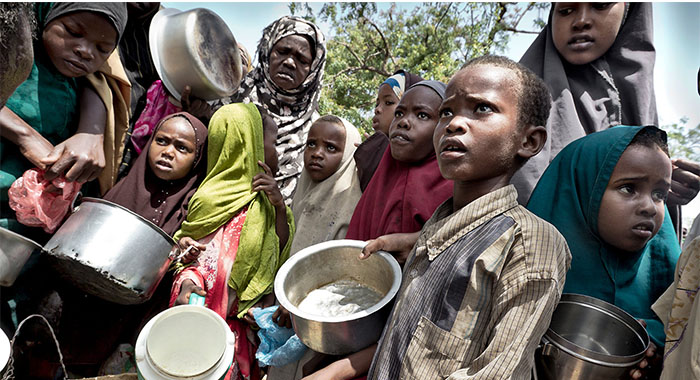Basil Odilim
Nigeria’s food supply is in its worst state ever. While herdsmen and bandits have overrun farmlands and kidnapped farmers, the government remains passive. As a result, many farmers, fearing for their lives, have abandoned their fields.

The consequences are now becoming apparent. Kwashiorkor is widespread, and even the upper-middle class can no longer afford basic necessities. Nigerians are economically stranded, with garbage bins going empty as families no longer generate food waste. The economic collapse is evident as ordinary citizens struggle to find their next meal.
Politicians, however, remain oblivious to the looming economic and social upheaval. The mismanagement and reckless spending under Buhari and Emefiele—where excessive printing of the Naira led to its devaluation from N190 to N1,600 per dollar—have deepened the crisis. Their economic irresponsibility has worsened the nation’s financial stability, leaving Nigerians in dire straits
Foreign and local investors have fled, anticipating imminent collapse. This exodus signals a crumbling economic foundation, with no new investments to revive stagnating industries. The flight of investors further exacerbates the poverty crisis, leading to job losses and increased hardship.
Amidst this, the privileged continue to thrive. Recently, Emefiele sought permission to travel abroad for medical treatment, a stark contrast to the suffering of ordinary Nigerians who lack basic healthcare. Corrupt bankers and officials flaunt their wealth with private jets, Rolls Royces, and mansions while the majority face severe deprivation.
In Nigeria, high public offices and jobs are often awarded based on connections, ethnic affiliations, and religious ties rather than merit. This nepotistic system stifles innovation and efficiency, as positions of power are filled by those with the right connections rather than the right qualifications. The practice mirrors issues seen in other nations with corrupt leadership, such as Venezuela and Zimbabwe, where favoritism has led to institutional decay and economic collapse.
The Nigeria I envision should be an egalitarian society, free from the influence of ethnically and religiously driven parasitic rulers—chiefs, kings, emirs, and princes—who have long plundered the nation. These traditional authorities, often colluding with politicians, perpetuate exploitation and inequality. The dream is to establish a republic where meritocracy prevails, and every citizen has equal opportunity, regardless of ethnic or religious background.
Furthermore, the judiciary must be reformed to free it from the clutches of those who use it to oppress and exploit. It should be restored to men and women of integrity who uphold justice and fairness. Corruption must be eradicated to allow democratic and capitalist institutions to function properly and provide equitable opportunities for all.
Additionally, religion must be separated from government and public spaces. Governance should be based on rational, inclusive policies rather than sectarian interests. A secular government ensures that all citizens are treated fairly and equitably, regardless of their religious beliefs.
The path forward requires a collective effort to reject the status quo and strive for a united, prosperous Nigeria. Only through determined action can the nation overcome its current challenges and build a future marked by justice, equality, and opportunity for all.